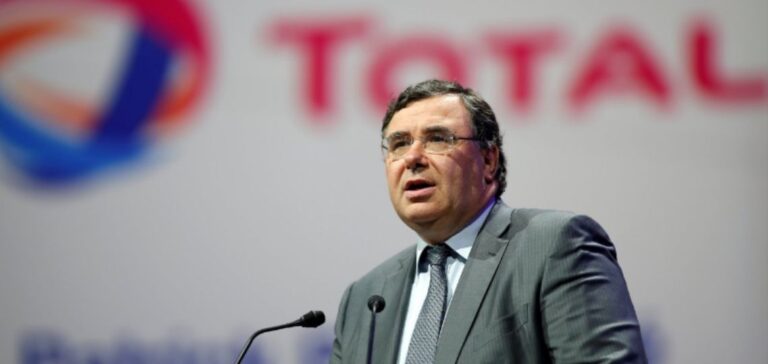The party’s not over yet: TotalEnergies posted another solid profit of $4.1 billion in Q2, albeit 28% down on last year as a result of lower oil and gas prices, which had reached stratospheric levels by 2022.
Shell and TotalEnergies : Earnings down despite persistently high figures
Unsurprisingly, in London, the British major Shell also reported profits on Thursday, still high but down, at $3.1 billion, a tumble of over 80% year-on-year. Last year was exceptional for TotalEnergies, with an annual net profit of $20.5 billion (€19 billion), its absolute record after its $16 billion in 2021. Like its competitors in the Western majors, the French giant had benefited from soaring oil and gas prices. The market was then shaken by the post-pandemic economic recovery, and even more so by the Russian offensive in Ukraine, followed by international sanctions aimed at drying up Putin’s oil and gas windfall.
Lower oil and LNG prices following supply reorganization
Since then, countries dependent on fossil fuels from Moscow have reorganized their supply strategies, contributing to a downturn in prices. Brent North Sea crude averaged $78.1 a barrel in Q2, a far cry from last year’s average of almost $114 at the same time. Average LNG sales prices have also fallen, trading in Q2 at $9.84/Mbtu (thousands of British thermal units, the unit of reference), compared with $13.96 in the same quarter of 2022.
TotalEnergies bets on LNG despite winter challenges and controversial investments
A lull, then, but until when? Recently, TotalEnergies CEO Patrick Pouyanné expressed caution about gas supplies this winter, saying that if it were cold in Europe, stockpiles would not be sufficient to meet seasonal demand, necessitating more imports and higher prices.
“Friendly prices don’t work in a market of supply and demand,” he warned.
TotalEnergies bets on LNG with projects and environmental criticism
Despite this decline, the Group is still counting on a very good year in 2023, thanks in particular to a successful strategy in liquefied natural gas (LNG). LNG sales surged by 15% last year as the world flocked – and continues to flock – to this ship-borne energy source, following Moscow’s decision to cut off its pipeline supplies. TotalEnergies is the world’s 3rd largest LNG player, and has been investing in gas in the USA, Middle East and Russia for several years.
In this country, it still holds a 20% stake in the Yamal LNG gas field in Siberia, alongside the private Russian company Novatek (50.1%).
In June 2022, Mr. Pouyanné explained that “in the absence of official sanctions” from the European Union on LNG and Novatek, “unilaterally terminating our long-term gas contracts with Russia would force the group to pay 40 to 50 billion in penalties” to the Russians. “It’s not reasonable,” he said.
The Group, which aims to increase the share of gas in its sales mix to 50% by 2030 (compared with 30% for petroleum products), announced last month that it was partnering a new project at the Rio Grande terminal in Texas, a gas liquefaction plant. This has fueled further criticism from environmental associations, who criticize the Group’s continued investment in fossil fuels, which are harmful to the climate.
Massive investment in renewable energies and controversy over oil project in Uganda
In response, the Group has announced a series of billion-dollar investments in renewable electricity: for example, its intention to develop 3 GW of solar projects in Spain, or the equivalent in wind power in Germany. On Wednesday, it announced the acquisition of 100% of Total Eren, a leader in renewable electricity generation, for 1.5 billion euros. At the same time, TotalEnergies also confirmed the start of oil well drilling in Uganda, as part of the Tilenga/Eacop megaproject, decried by environmental and human rights groups. Overall, oil production rose again this quarter, thanks to new fields in Nigeria, Brazil and Oman.






















